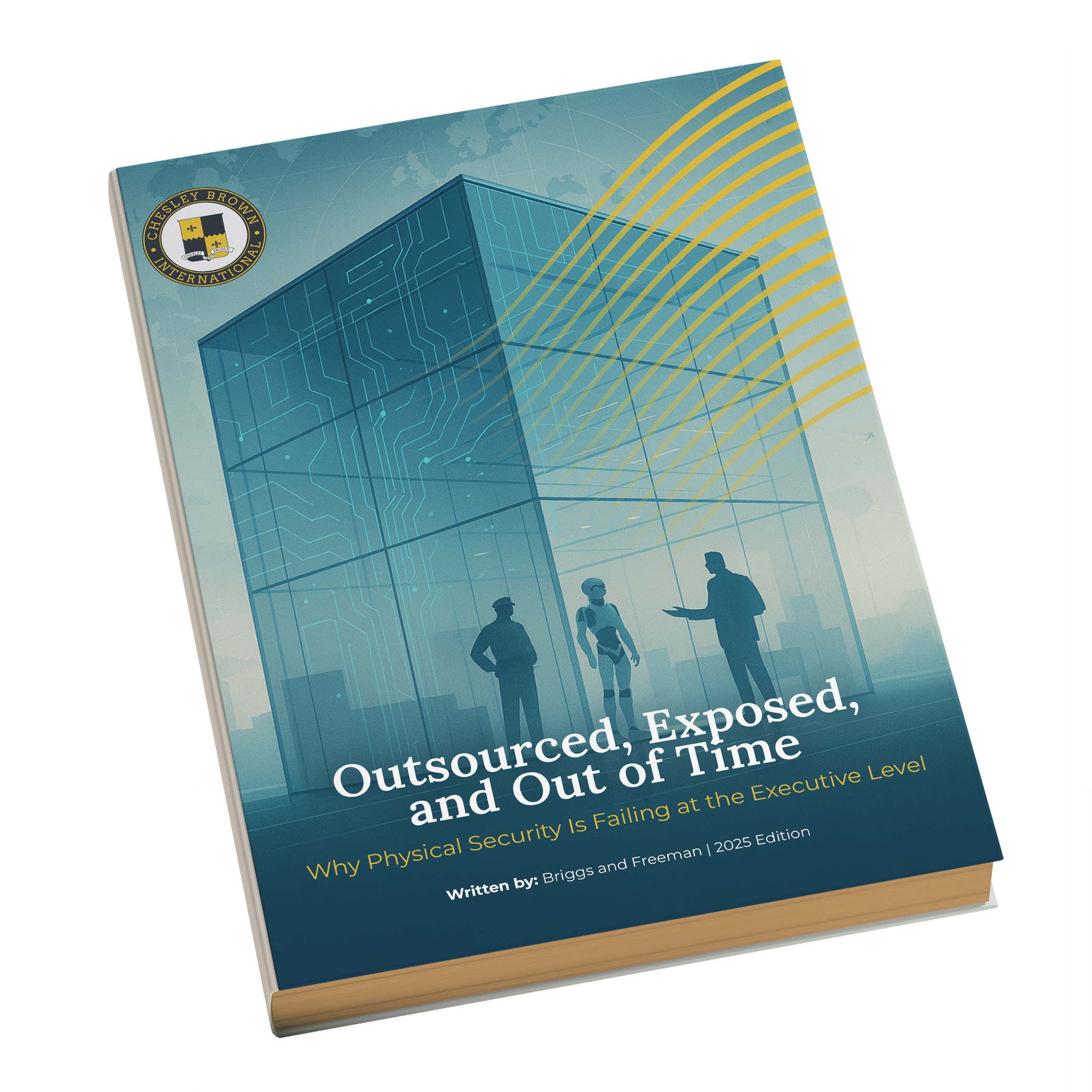Written by: James Hart
It’s always important to remember: Private security officers aren’t police, and police aren’t security officers. The two roles are both important, but they have fundamental differences.
“Security officers can’t be everywhere, and they can’t see everything,” said Max Briggs, vice president of central operations for Chesley Brown International, the security consulting and management firm.
“And they also can’t necessarily get involved in everything because they may not have weapons or handcuffs or any of the things required to actively engage someone.”
But there are things that security officers can adopt from modern policing that will create a safer, better experience for tenants, guests and other patrons. That’s especially true when it comes to community policing, a strategy that could be an exceptional fit for many security teams.
How community policing overlaps with security
Community policing is an approach to public safety that emphasizes closer collaboration and relationships between officers and the people they serve. It was originally proposed as a way to strengthen and repair ties between police and the public.
Under community policing, officers spend more time in a particular area, sometimes literally walking a beat, instead of driving around in a patrol car and not engaging with the public. They can devote more time to talking to people, so they can better identify problems and work with residents to solve them. The emphasis is on responding proactively to security challenges.
Unfortunately, that’s not how most police officers are able to handle most calls for service, simply because they are so busy — they have to respond reactively. The problem has been particularly pronounced in recent years as many departments have been hit with high turnover and can’t recruit enough officers to fully staff their shifts.
If it’s tougher for police to slow down, most security teams do have the bandwidth to be proactive and have conversations with the people they serve, though it won’t solve the larger recruitment and retention challenge faced by some police agencies.
“At the end of the day, can security fill that gap?” Briggs said. “I think there are potentially ways that they could, but we have to understand it’s not like we have a magic pill to solve the overarching problem of attracting and retaining quality people.”
Stronger partnerships make it easier to share vital information
Because security officers spend more time on the property, it’s more likely they’ll be known and trusted by tenants. So when a tenant or guest notices a problem, they won’t hesitate to contact security. And if security has a question or needs information, tenants and guests will be more likely to share what they know. One of the major ways that security teams can assist the police is by sharing information — the same kind of collaboration that’s encouraged by a traditional community policing program.
The typical police officer might be responsible for patrolling vast areas while a private security officer’s territory is much smaller. It’s the difference between square miles versus square feet. As a result, it’s much easier for security officers to develop an in-depth knowledge of the areas they serve.
So security officers can give police or firefighters in-depth tours of a property, including service areas and other places that are off-limits to most visitors. That way, if there is ever an emergency, they have a greater knowledge of where to go and how to get there. And if illegal activity occurs on a property, security officers can often provide surveillance that’s less obtrusive and more effective.
“That security officer becomes very good at observing and reporting what they see, and they’re almost ignored by the perpetrators,” Briggs said. “That gives them a very good vantage point to see and record and document things like drug activities.”
A greater focus on out-of-the-box problem-solving
Like community policing programs, security teams can also provide creative solutions to chronic problems. Briggs remembers how one client property was located next to a bridge with a large homeless camp. Some of the people who lived there were selling and using drugs, creating safety issues for tenants and guests.
Normally, police and security would try to solve the problem by running off anyone who was causing problems, but that wasn’t a practical, long-term solution, Briggs said. The troublemakers would just return a short time later.
“The clients’ employees didn’t feel safe,” Briggs said. “And so we had a security director there who was running across the same situation that police run across. You know, he’d go out there and run off the same people every time.”
So, one day, the security director approached one of the homeless people with a question: “What do you need?”
The security director explained the situation: The homeless camp was causing problems for neighbors, and security wanted the people who stayed there to find somewhere else. They were willing to provide supplies to the homeless people in exchange for them leaving. The man asked for clothing, food and other items. The security director put together a package with all those items, and the man left.
Even better, the security team was able to repeat the practice and bring down the number of homeless people near the property. Was it a perfect solution? No. Eventually, new homeless people would move into the camp, but the strategy still helped the clients’ tenants feel safer.
“Maybe it was a momentary win, but it was helping people who needed help without being confrontational,” Briggs said.
Confronting problems without being confrontational is an important skill for similar situations.
A few years ago, protest marches were slated to go past a client’s office building in Atlanta. Technically, Briggs said, security could have tried to turn the protesters away — the street in front of the building was privately owned and maintained.
“As a property owner,” Briggs said, “that owner had every right to say to protesters, you can’t come on this property, you can’t use this road.”
But the security team realized that winning the argument was going to be hard. So they decided to try a different approach. When the march moved closer to the property, security officers approached the group’s leaders and said they respected their right to protest. Security explained that while the street was technically private property, they weren’t going to keep the marchers out.
They had only one request: Please don’t walk on the flowers or other landscaping. The marchers were happy to comply.
“You abided by the rules, but you allowed someone else to have their expression,” Briggs. “And you kind of immersed yourself in the community to an extent that you could at least empathize with their role.”
The bottom line on private security and community policing strategies
Security teams that adopt community policing techniques can enjoy greater trust and closer relationships with the people they serve — assets that make it easier for security officers to make a difference.
Security officers are well-positioned to practice community policing, partly because of the nature of their jobs. They spend most of their time in a relatively small place, like a single office tower or one shopping center, and they spend more time engaging face to face with the public, so they get to know their coverage area exceptionally well. While it may have originally been designed for traditional police forces, community policing could deliver significant benefits for private properties and security teams.
Ready to enhance the security of your property? Partner with Chesley Brown International to implement community policing strategies and experience the benefits of a well-connected, secure community. Contact us today to learn more about our comprehensive security solutions and how we can help you build trust and safety in your property.
Sign up!
For industry-leading guides and analysis sign up for our blog below.
Latest News
Top 10 Security Lessons Businesses Learned in 2025
Written by: James Hart Companies face an ever-evolving series of security threats, making contingency planning and preparedness essential. One of the best ways to improve security is by learning from past incidents. The end of…
Maximizing Value and Resilience in Physical Security: A C-Suite Guide for Multi-Asset Organizations Facing Emerging Threats and Higher Costs
Written by: Max Briggs Physical security used to be a straightforward operational line item—gates, guards, cameras, and access control. Today, it’s a board-level function tied directly to risk, resilience, tenant satisfaction, and enterprise value. Organizations…
Employee Spotlight: Stacy Stockton
At Chesley Brown, we believe people are our greatest asset and that starts with bringing on team members who are passionate about protecting what matters most. We’re proud to welcome Stacy Stockton to the team…
Black Friday Security Playbook: How Retailers Can Prevent Holiday Crime
Written By: James Hart The holiday shopping season isn’t just the most important time of year for retailers. It’s also when their risk of theft shoots up. In 2023, retailers saw a 93% jump in…
Outsourced, Exposed, and Out of Time: Why the Future of Security Requires a Different Playbook
For decades, organizations have leaned on traditional outsourced security models like uniformed officers, integrators, and legacy third-party vendors. But the world they were built for no longer exists. Cyber-physical convergence, foreign-owned suppliers, rapid threat evolution,…







